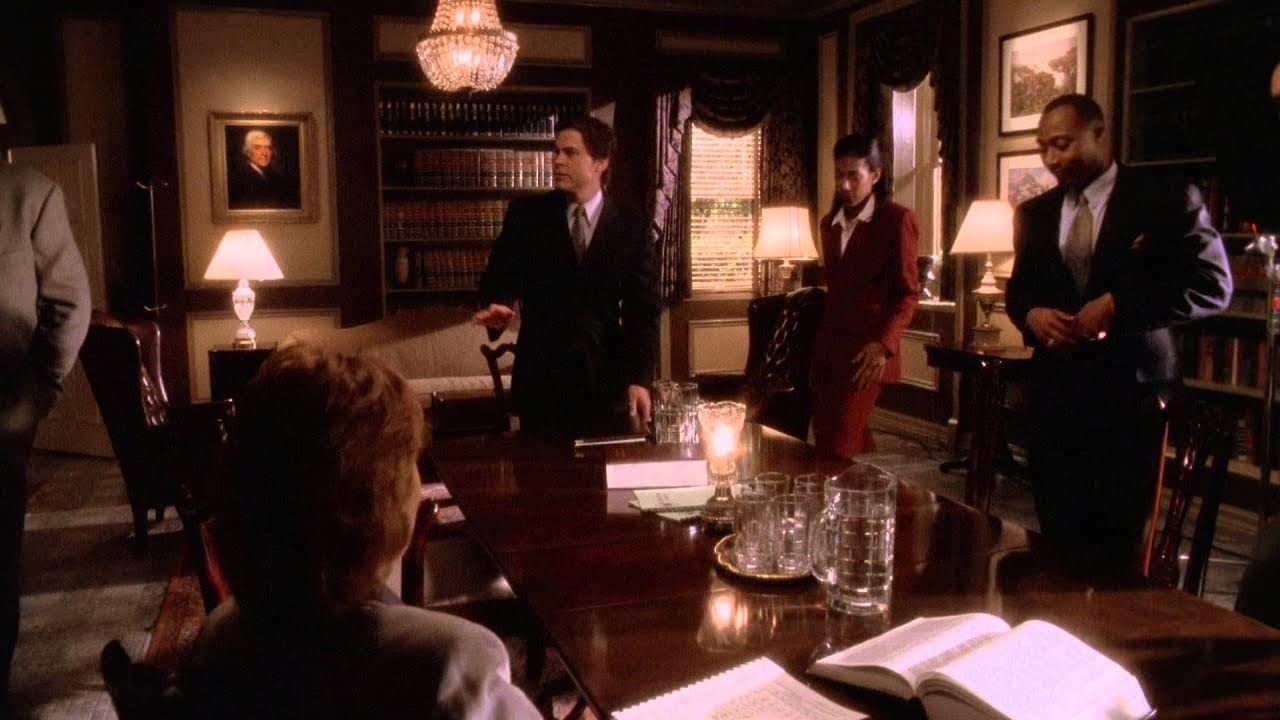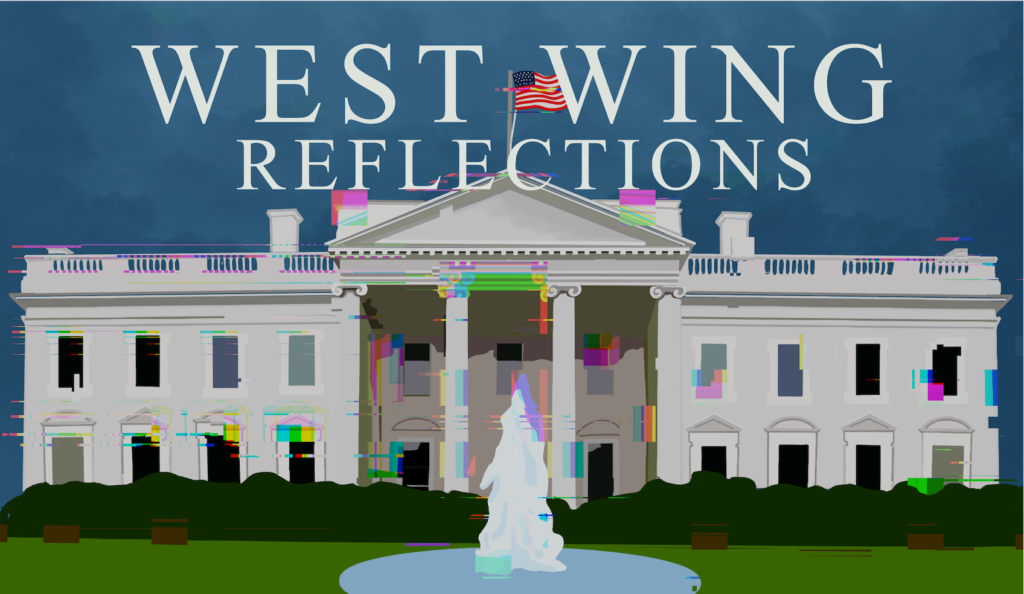West Wing Reflections: Lies remain ever-present unchecked part of politics if no accountability

(Courtesy of NBC)

By Alex Driscoll
Nov. 12, 2020 2:01 p.m.
Garnering 95 Emmy nominations and 26 wins in its seven seasons, “The West Wing” is an NBC television drama that depicts an era in which the president of the United States is a Catholic Democrat and Twitter does not yet exist. Though it premiered back in 1999 and ran until 2006, columnist Alex Driscoll dives into various episodes of the series, putting a twist on a typical review with analysis on how the show reflects today’s political climate.
It’s often said that people should enjoy the journey and not the destination – unless the destination is the Oval Office.
No politician is perfect, and sometimes an outside perspective is critical in determining the Unites States’ own flaws, highlighting the importance of accountability. Despite its hopeful idealism, “The West Wing” succeeds in giving its viewers such perspective while staying within the dramatized confines of television. As the 20th installment of the second season of “The West Wing,” “The Fall’s Gonna Kill You” depicts the debilitating snowball effect of lying to the public, especially on the brink of an election season.
Building off a serialized storyline, President Josiah Bartlet (Martin Sheen) faces his own moral conundrum on the cusp of his announcement for reelection. Prior to winning his first term, Bartlet was diagnosed with multiple sclerosis, but the lack of visible side effects allowed Bartlet to conceal his diagnosis and avoid concerns from voters doubting his abilities to run the country.
Throughout the episode, the staff struggles with how the public will respond to the media’s inevitable uncovering of Bartlet’s condition. Press secretary C.J. Cregg (Allison Janney) echoes feelings of betrayal after learning that she has unknowingly lied about the president’s medical history for years. C.J.’s inner turmoil anchors the episode to reality, and Janney’s performance stands out amid the panic circulating through Bartlet’s White House.
After learning about Bartlet’s diagnosis, White House legal counsel Oliver Babbish (Oliver Platt) goes head to head with C.J. over past press briefings about the president’s health. Their dialogue is sharp, but it’s C.J.’s realization that the impact of Bartlet’s lies goes far beyond a federal subpoena or bad polling numbers. She recognizes that his failing integrity in the public eye will inevitably seal the President’s chances of winning a second term.
Yet it’s Oliver’s eagerness to dissolve legal repercussions against Bartlet that echoes the ways in which President Donald Trump has handled his own contentious political history. Calling on legal action against a variety of public claims that threaten his integrity, President Trump is often quick to demonize the media and Democrats for his own misgivings.
Trump has also been critiqued by public health officials for his early comments that downplayed the severity of COVID-19, but the term “fake news” aids Trump in absolving himself of public accountability. While Bartlet attempts to get ahead of his own personal scandal without the media’s involvement, Trump has utilized social media as a tool for political attacks to fire up his own base.
Even in this new historical chapter, 2020’s election results illustrate the importance of integrity and responsibility within democratic politics. According to CNBC exit polls on voters’ top issues in this election, the COVID-19 pandemic, racial inequality and the economy drove a record number of voters to fill out their ballots.
In the wake of his loss to former Vice President Joe Biden, President Trump has continually denied the election’s results, claiming ballot fraud and corruption on behalf of the Democratic Party. Ashlie Andrade, a second-year political science student, member of Bruin Republicans and membership director of the Pre-Law Society at UCLA, said in an emailed statement she believes President Trump’s actions in regard to the COVID-19 pandemic have played a largely negative role in Trump’s performance on election night.
“He had multiple quotes starting in January saying that the situation is under control and numbers were fading, which we know is clearly not the case as we are still dealing with this issue,” Andrade said in the statement. “The way he handled (the COVID-19 pandemic) just showed his inability to handle a national crisis and therefore dissuaded voters.”
If the country is to continue holding its politicians accountable like they did at the polls last week, then it is imperative that public oversight continue beyond the election and into the next four years. As for the “The West Wing,” Bartlet’s impending scandal remain a brief introduction to the ways politics have become increasingly more personal since the ’90s.
“Trump has changed the way our politics work in a few different ways,” Andrade said. “He has made (campaigns) more candidate centered, making the party less important than the individual, all about building a personal brand.”



